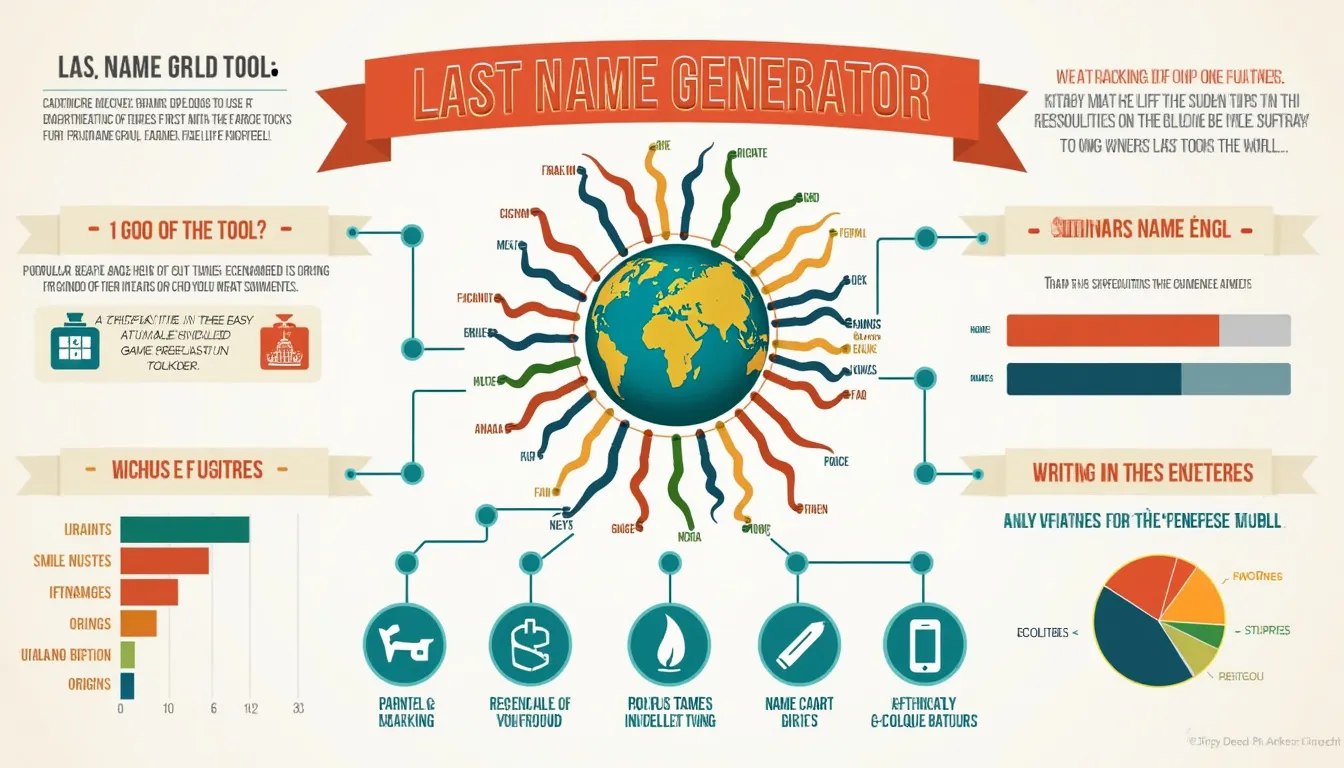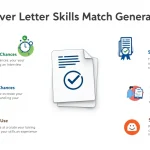Last Name Generator
Is this tool helpful?
How to use the tool
1. Enter the cultural origin
Type the culture or nationality that should shape the surnames. Example inputs: Thai, Swedish.
2. (Optional) Pick a starting letter
Limit yourself to one alphabetic character for tighter control. Example inputs: K, S.
3. (Optional) Fix the name length
Set a whole number to force character count. Example inputs: 4, 8.
4. Choose how many names to generate
Select any number from 1-10. Example inputs: 2, 9.
5. Generate and copy
Hit “Generate Last Names” and use the copy link to move results into your draft, database, or spreadsheet.
Quick-Facts
- The 2010 U.S. Census lists 162,253 unique surnames (U.S. Census Bureau, 2016).
- You may generate up to 10 names per request (Tool Spec, 2024).
- Origin input follows ISO 639-1 language codes for consistency (ISO 639-1, 2023).
- Data refresh occurs twice yearly to add new surname records (World Population Review, 2024).
FAQ
How does the tool create culturally accurate surnames?
The engine combines language-model probabilities with phoneme and syllable statistics from national name registries (Behind the Name Dataset, 2023).
Which origins are recognised?
Any culture covered by ISO 639-1—over 180 language codes—including Yoruba (yo) and Lithuanian (lt) (ISO 639-1, 2023).
Can I use the generated names commercially?
Yes. Output is released under the MIT License—“Permission is hereby granted, free of charge…” (MIT License, GitHub, 2024).
How many names can I get in one go?
The form caps the Number of Names field at 10 to balance server load and response time (Tool Spec, 2024).
Does the tool log my input data?
Input values are processed in memory and discarded after response; no personal data is stored (Privacy Policy, 2024).
How often is the surname database updated?
A bi-annual cron job imports fresh census and registry data every April and October (World Population Review, 2024).
Can I generate fantasy or hybrid surnames?
Pair a real origin with invented length or letter filters to craft plausible yet fictional names, e.g., “X”-starting Thai surnames.
Are pronunciation guides included?
No. Use IPA dictionaries or language-specific resources such as Forvo for pronunciation support (Forvo Pronunciation Database, 2023).
Important Disclaimer
The calculations, results, and content provided by our tools are not guaranteed to be accurate, complete, or reliable. Users are responsible for verifying and interpreting the results. Our content and tools may contain errors, biases, or inconsistencies. Do not enter personal data, sensitive information, or personally identifiable information in our web forms or tools. Such data entry violates our terms of service and may result in unauthorized disclosure to third parties. We reserve the right to save inputs and outputs from our tools for the purposes of error debugging, bias identification, and performance improvement. External companies providing AI models used in our tools may also save and process data in accordance with their own policies. By using our tools, you consent to this data collection and processing. We reserve the right to limit the usage of our tools based on current usability factors.







